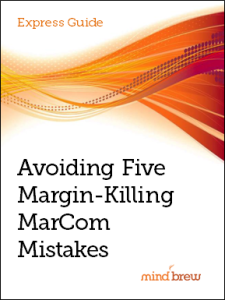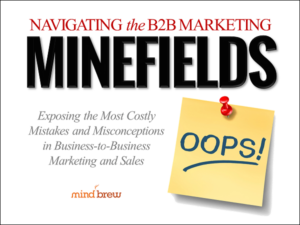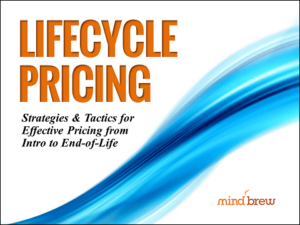Somewhere in my home, probably in one of the boxes in the garage marked “Misc. tools,” there is a voltmeter. I know we have this particular tool because during the last twenty years, we have used it exactly twice. Both times we were following some very specific step-by-step project instructions that called for a voltmeter. Otherwise, we never would have used it—or even bought it—because, frankly, we don’t really understand what it is or why we needed it.
Buying a voltmeter did not make me an electrician. In the same way, using Photoshop doesn’t make someone a graphic designer. Having $10,000 worth of wood-working tools does not make you a master carpenter.
And buying a marketing automation solution will not make you a great marketer.
Now, don’t get me wrong—marketing automation tools can do some amazing things, and they definitely have their uses. But all too often, B2B companies decide to hop on the marketing automation bandwagon without really understanding how to use this technology well. They see the commonly cited statistic that marketing automation can increase the number of leads in the sales pipeline by 10 percent and decide to make a purchase.
According to one study, nearly 11 times more B2B companies were using marketing automation in 2014 as in 2011. Clearly, B2B marketers think that they have something to gain by adopting automation technologies.
But in some cases, B2B marketers find that their automation tools actually reduce the size of their average order. Many don’t see the results they expected, and as a result, look to change their automation vendor within a year or two. In a DemandBrew interview, Dan McDade, the CEO of PointClear and the author of The Truth About Leads, warns that this type of technology “makes it possible to put more poor-quality leads into the hands of sales faster than ever before.”
So what should you do if you find yourself the owner of a marketing automation system? Here are four tips to help you get the most out of your technology:
- Don’t Use Automation for All Your Prospects. Pull out the top 25 percent of your prospects—those that you think have the best sales potential—and keep them separate from the automation system. Nurture these leads by hand, contacting them multiple times through multiple media. That way you’re spending your time where it is most likely to pay off. Let the automation system do what it does best: helping you save time by finding and nurturing the remaining 75 percent of leads that may or may not be worthwhile. You might also want to think about keeping a small set of prospects out of the automation system to serve as a control group. That way you can tell for sure if your marketing automation system is generating results beyond what you would normally see.
- Think Beyond Email and the Web. The Internet offers unique opportunities for marketers because it is so much more measurable than most other media and because so much modern communication is digital. But that doesn’t mean you should abandon everything else. Many B2B marketers are rediscovering that “outdated” means of lead generation like direct mail and even old-fashioned telephone calls are better than email alone for making contact with high-level managers who can approve high-budget deals.
- Remember that Automation Isn’t a Substitute for Good Marketing Practices. Automation works best when it is used by marketers who are also doing in-depth customer and competitive research, effective segmentation, detailed measurement and analysis, and regular outbound marketing. Automation is just one tool in your toolbox—don’t forget about all the others.
- Don’t Stop Learning. No matter how long you have been in marketing, there is always more to learn—about your customers, about your market, or about the practice of marketing. The most effective marketers are those who keep doing research and keep making new discoveries.
For more tips on using marketing automation effectively while avoiding potential pitfalls, listen to Rafe VanDenBerg’s interview with Dan McDade “Getting Beyond the Hype of Marketing Automation Tools.”
Beyond the Hype of Marketing Automation Tools

Marketing automation tools can be very powerful and beneficial. But are these toolsets really the answer to all of our lead generation woes? In this interview with Dan McDade, the author of The Truth About Leads, we cut through the hype surrounding marketing automation tools and discuss their proper role in lead generation.






